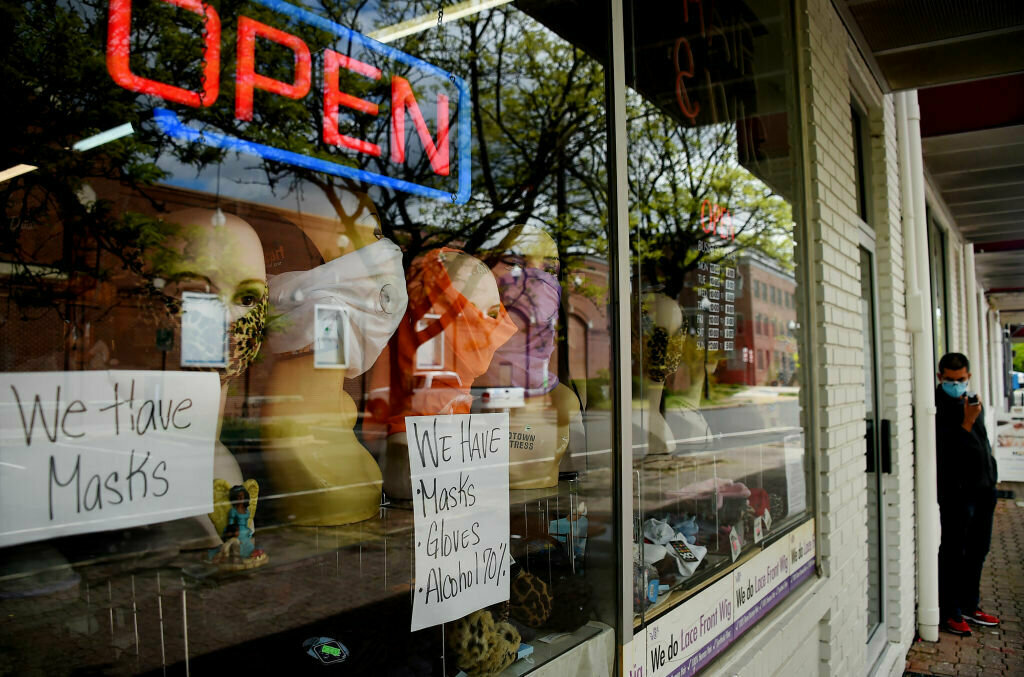
While the region has undertaken unprecedented steps to limit the spread of the new coronavirus, a growing list of doctors, scientists and Virginians say an even more aggressive approach will have faster, more-effective results.
The recommendations — made in conjunction with the scientists behind the website EndCoronavirus.org — would be considered draconian by some.
But the proponents say that’s the point. And so far, more than 100 scientists and doctors from around the commonwealth have signed on to endorse a letter to Gov. Ralph Northam.
The steps laid out would “stop the outbreak, instead of taking actions that reduce it, but don’t get rid of it,” said Yaneer Bar-Yam, the president of the New England Complex Systems Institute and the chief adviser behind the initiative.
His previous work includes collaborating with the Centers for Disease Control and Prevention to combat the ebola virus.
- Sign up for news alerts from WTOP
- Bowser says DC ‘not there yet’ on reopening but names heads of committee
- Virginia sees rise in virus cases at poultry plants; plans to ramp up testing
- Maryland to expand coronavirus testing, detail nursing-home cases
- HR managers scramble to figure out what returning to the office means
- Latest coronavirus test results in DC, Maryland and Virginia
- Coronavirus resources: Get and give help in DC, Maryland and Virginia
Bar-Yam said the seven recommendations, fully implemented, would stop the spread in Virginia within three to five weeks.
His plan, posted online at EndCoronavirus.org, captured the attention of experts in Virginia who then reached out to collaborate on putting these ideas forward in Richmond.
But Bar-Yam said it can be applied to other states, too, and he reasons that if Virginia took these steps and showed progress, it would become a national model for others.
“Instead of just the minimal things that we need to do, if we take stronger action, then you can actually extinguish the outbreak,” Bar-Yam said. “Because you stop the transmission, and the virus doesn’t survive if there’s no transmission. And then you can actually get back to normal quite quickly.”
It starts with intensifying social distancing.
“Instead of doing the minimal social distancing, you do the maximum,” Bar-Yam said. “You do that by having safe access to essentials. So, instead of going into a supermarket — using curbside or pickup or delivery. Make sure that people are wearing masks.”
Testing also has to be done better and more often, Bar-Yam said, who argued that Virginia needs to have at least 1,000 contact tracers ready to go. If that’s too ambitious, he said, volunteer contact tracers will still help.
Other recommendations include taking unused college dorms and hotel rooms to help safely isolate those who have the virus from others when they can’t safely isolate at home.
However, the most difficult recommendation might be the last, which is to ban all nonessential air and highway travel, with a 14-day quarantine for most out-of-state visitors.
“We cannot allow people to bring in the disease to areas that don’t have it,” Bar-Yam said. “So they have to have a way of setting up boundaries that are going to be protected. That doesn’t mean that no one can come in and out. Essential travel should of course be set up.”
How that would work would be up to state and local governments, provided the state offered localities more authority than they typically get.
“There are various ways of doing it,” he said. “You make a list and say, ‘Well, these people we would let in.’ And you have to be flexible if there are exceptions that you really need to deal with.”
Bar-Yam added that ideally, the communities themselves would take on the challenge of enforcing it, so that it didn’t land in the hands of police and local governments.
“A lot of what is important in dealing with an outbreak like this should be community-based. People should know that they have to take care of helping their neighbors and making sure that they’re well, making sure that they’re not sick,” Bar-Yam said.
In a statement, Alena Yarmosky, a spokeswoman for Northam, said he “appreciates this input,” and goes on to say that the spread of the virus is starting to slow in Virginia.
“Governor Northam will continue to make decisions based in science, data and public health as he has throughout this crisis,” Yarmosky said.
“Everyone wins by doing this well,” Bar-Yam said. “Absolutely everyone, because if we can return to normal, economic activity is going to be restoring, and people are going to get back to normal existence.”








